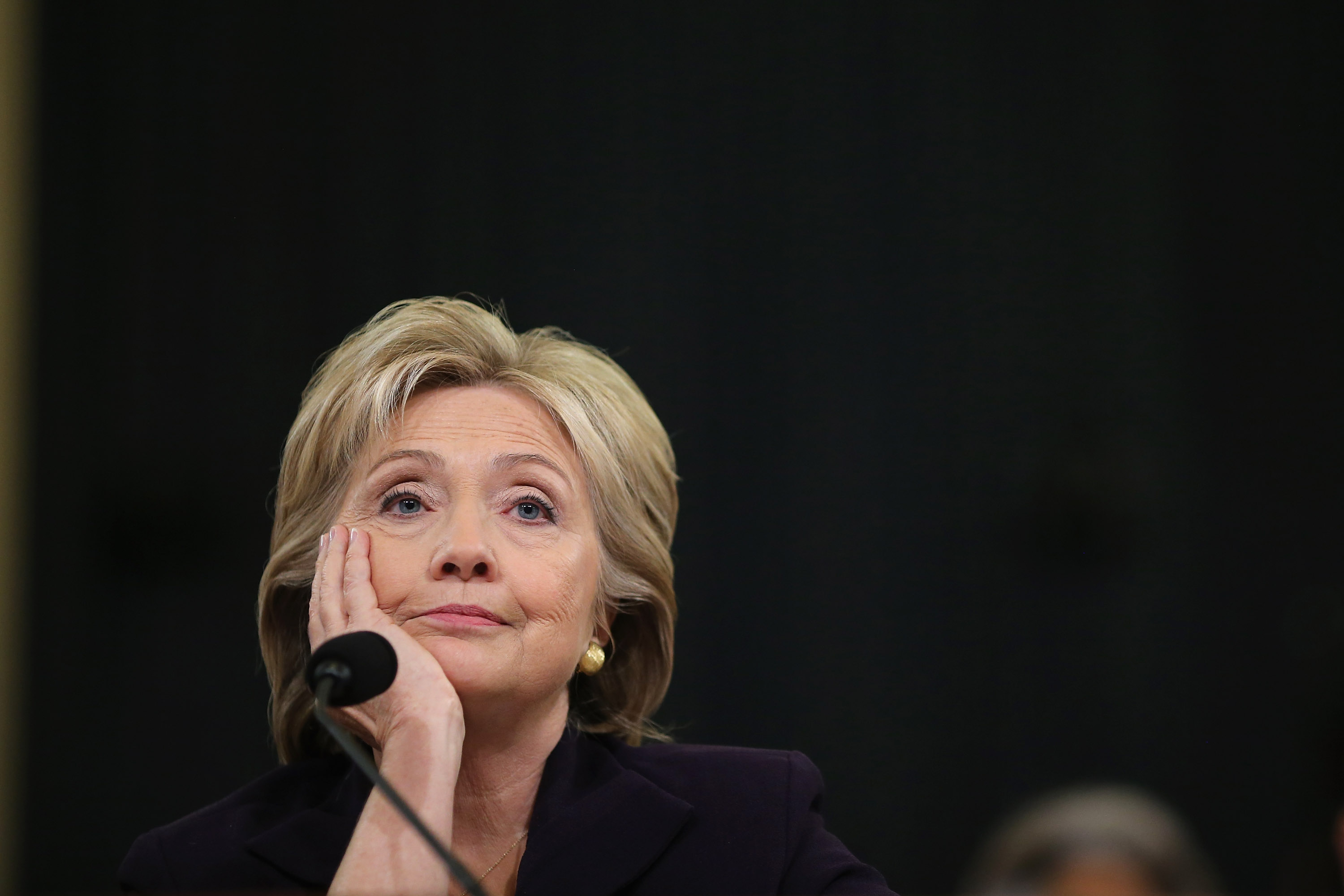The Benghazification of Hillary Clinton's emails
Congressional Republicans have announced that five — five! — separate congressional committees will investigate the FBI's handling of the case. This is madness.


Just as Obama-era Republicans have made George W. Bush look like a much more reasonable figure than he seemed when he was president, the rapid redeployment of the anti-Clinton scandal machine might cause one to reevaluate the relationship between Barack Obama and Republicans in Congress. While it's true that they've been relentlessly attacking the president since he first took office in 2009, it's now clear that while Republicans were waging an ideological, personal, and at times legal battle, what they didn't do — not to the extent they might have, anyway — is use their institutional tools to create a never-ending aura of scandal around the Obama administration. We can realize that now because, with four months to go until the election, we've just time traveled back to the 1990s.
It's not that Republicans haven't held hearings on potential Obama administration scandals. But one after another, they came to nothing. Solyndra, Fast and Furious, the IRS — they all played out pretty much the same way. Republicans thought they had unearthed something big, an event that would prove the true wickedness of Obama and his underlings. But then upon investigation, there just wasn't much there — a regrettable series of events, some bad bureaucratic decisions, but no criminality and nothing that got anywhere near the Oval Office. So the non-scandals faded away, to live on only in fundraising appeals for obscure conservative groups and those breathless email chains your crazy uncle gets.
There was one exception, though: Benghazi. Benghazi, Benghazi, Benghazi, spoken like a mantra and invoked to represent all that is dark and twisted and heartless about... well, not about President Obama, actually. About Hillary Clinton. It's no accident that the one pseudo-scandal that truly spurred congressional Republicans to action — and eight separate investigations — was the one where they could focus all their attention on her. If the attack on Benghazi had happened six months or a year later — when John Kerry was secretary of state — would there have been eight separate congressional investigations into it? Not on your life.
The Week
Escape your echo chamber. Get the facts behind the news, plus analysis from multiple perspectives.

Sign up for The Week's Free Newsletters
From our morning news briefing to a weekly Good News Newsletter, get the best of The Week delivered directly to your inbox.
From our morning news briefing to a weekly Good News Newsletter, get the best of The Week delivered directly to your inbox.
And now that there's nowhere else to go on that, Republicans have turned their attention to Clinton's emails, where she actually did something inappropriate. They got what they were hoping for, an investigation by a large team of career crime-fighters at the FBI, who surely would make it clear that Clinton ought to be in jail, as Republicans had been saying for so long. But then when FBI director James Comey concluded what every lawyer in sight had been saying for months — that whatever you might say about Clinton's emails, it wasn't a crime and she wouldn't be prosecuted — Republicans were furious.
And how did they react? The only way they know how when it comes to the Clintons. Comey was hauled before the House Oversight and Government Reform Committee, where instead of using the opportunity to replay and magnify his criticisms of Clinton, Republicans attacked him for not putting her in leg irons. And that's just the beginning: They've announced that five — five! — separate congressional committees will investigate the FBI's handling of the case. The Benghazification of Clinton's emails has begun, and it won't stop, at least not until there's something else that can become the focus of their unflagging belief that if only they look hard enough, her criminality will become clear to all.
If you were around in the 1990s, this has a very familiar feel. For much of Bill Clinton's presidency, Congress was practically one giant Select Committee on Getting the Goods on Bill and Hillary. There were hearings on anything and everything — Whitewater, Filegate, Travelgate, this gate and that gate. At one point a prominent congressman conducted a home experiment that involved firing a bullet through a cantaloupe, in an attempt to prove that the Clintons killed their friend Vince Foster (seriously — that actually happened). As The Boston Globe noted in 2005, once George W. Bush was president, Republicans could rouse themselves for only 12 hours of hearings on the mistreatment of prisoners at Abu Ghraib, a scandal that did incalculable damage to America's image around the world, but a few years earlier they took 140 hours of sworn testimony on the pressing issue of whether the Clintons had misused the White House Christmas card list.
So get ready, because we're already getting back into that pattern. Whenever there's an allegation (no matter how ludicrous) that Hillary or Bill Clinton did something wrong, there will be a congressional investigation of it, complete with televised hearings, witness badgering, and rising voices expressing righteous anger. For as long as Hillary Clinton is president, those investigations will continue, whether they find anything or not.
A free daily email with the biggest news stories of the day – and the best features from TheWeek.com
They won't accuse her of not being American or sympathizing with our enemies, as they did with Barack Obama. For her, it will be all about the congressional investigations, built on the conviction that if they look hard enough and cut deep enough, they'll reveal the pulsing core of evil that must surely lie within the Clintons. That's just how Republicans confront her; they know no other way.
Paul Waldman is a senior writer with The American Prospect magazine and a blogger for The Washington Post. His writing has appeared in dozens of newspapers, magazines, and web sites, and he is the author or co-author of four books on media and politics.
-
 How will China’s $1 trillion trade surplus change the world economy?
How will China’s $1 trillion trade surplus change the world economy?Today’s Big Question Europe may impose its own tariffs
-
 ‘Autarky and nostalgia aren’t cure-alls’
‘Autarky and nostalgia aren’t cure-alls’Instant Opinion Opinion, comment and editorials of the day
-
 Japan’s Princess Aiko is a national star. Her fans want even more.
Japan’s Princess Aiko is a national star. Her fans want even more.IN THE SPOTLIGHT Fresh off her first solo state visit to Laos, Princess Aiko has become the face of a Japanese royal family facing 21st-century obsolescence
-
 Has Zohran Mamdani shown the Democrats how to win again?
Has Zohran Mamdani shown the Democrats how to win again?Today’s Big Question New York City mayoral election touted as victory for left-wing populists but moderate centrist wins elsewhere present more complex path for Democratic Party
-
 Millions turn out for anti-Trump ‘No Kings’ rallies
Millions turn out for anti-Trump ‘No Kings’ ralliesSpeed Read An estimated 7 million people participated, 2 million more than at the first ‘No Kings’ protest in June
-
 Ghislaine Maxwell: angling for a Trump pardon
Ghislaine Maxwell: angling for a Trump pardonTalking Point Convicted sex trafficker's testimony could shed new light on president's links to Jeffrey Epstein
-
 The last words and final moments of 40 presidents
The last words and final moments of 40 presidentsThe Explainer Some are eloquent quotes worthy of the holders of the highest office in the nation, and others... aren't
-
 The JFK files: the truth at last?
The JFK files: the truth at last?In The Spotlight More than 64,000 previously classified documents relating the 1963 assassination of John F. Kennedy have been released by the Trump administration
-
 'Seriously, not literally': how should the world take Donald Trump?
'Seriously, not literally': how should the world take Donald Trump?Today's big question White House rhetoric and reality look likely to become increasingly blurred
-
 Will Trump's 'madman' strategy pay off?
Will Trump's 'madman' strategy pay off?Today's Big Question Incoming US president likes to seem unpredictable but, this time round, world leaders could be wise to his playbook
-
 Democrats vs. Republicans: who are US billionaires backing?
Democrats vs. Republicans: who are US billionaires backing?The Explainer Younger tech titans join 'boys' club throwing money and support' behind President Trump, while older plutocrats quietly rebuke new administration
